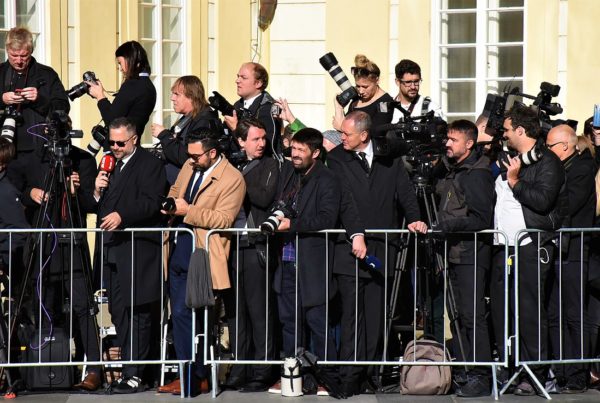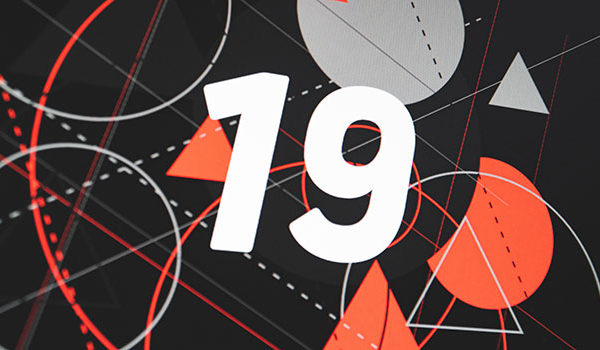(This article written by Nima Gholam Ali Pour was originally published January 2, 2016 on Gatestoneinstitute.org. Reprinted with permission.)
- Sweden is a country where using the word “mass immigration” usually gets criticized just for sounding racist. Only anti-Semitism does not get criticized. In Sweden, all other forms of racism — even things that some say could be classified as racism — are criticized, and ruthlessly.
- TV4, one of the most important Swedish media outlets, in 2015 described anti-Semitism as simply a “different opinion.”
- “What is history for us is not the history of others. … When we have other students who have studied other history books, there is no point in discussing facts against facts.” — The administration of an adult-education school, in a reprimand to a teacher who said the Holocaust actually took place.
- “The Jews are campaigning against me.” — Swedish Foreign Minister Margot Wallström.
- There are fewer than 20,000 Jews in Sweden; more than 20,000 Syrians received asylum in 2014 alone. That is why so few politicians — who are eager to win the votes of immigrants — talk about Arab anti-Semitism.
On November 9, an anti-racism demonstration was going to be held in Umeå, Sweden, in commemoration of Kristallnacht (the night in 1938 in which 400 Jews were murdered in Germany, and 30,000 Jewish men arrested and sent to concentration camps). There was just one catch: the Jews in Umeå were not invited to the demonstration. The reason given, according to one of the organizers, Jan Hägglund, was that the demonstration would be “perceived as an unwelcoming or unsafe situation for them.”
The path to this surreal situation, in which an anti-racism demonstration in Sweden in commemoration of Kristallnacht could be perceived by Jews as a threat, has long been in the making. This demonstration was of some significance. The people behind it were not extremists. Four of the Swedish Parliament’s eight parties were involved in organizing it.
This anti-racist demonstration and the strange events surrounding it represent a process that, sadly, has been going on in Sweden for a long time. A new kind of Swedish anti-Semitism has been growing strong; the city of Malmö has been its flagship.
In January 2009, a pro-Israel demonstration in Malmö was attacked by Arabs who were shouting “f—ing Jews.” The police could not protect the pro-Israel demonstrators from the eggs and the bottles being thrown at them. The event had to be temporarily stopped when the Arabs began to shoot fireworks at the pro-Israel demonstrators.
 In January 2009, an Arab mob in Malmö pelted a peaceful Jewish demonstration with bottles, eggs and smoke bombs. The police pushed the Jews, who had a permit for their gathering, into an alley. In January 2009, an Arab mob in Malmö pelted a peaceful Jewish demonstration with bottles, eggs and smoke bombs. The police pushed the Jews, who had a permit for their gathering, into an alley.
|
In 2010, for the first time — but not the last — the synagogue in Malmö was attacked. The same year, the Simon Wiesenthal Center began warning Jews to not visit Malmö, “due to harassment of Jewish citizens,”.
Today, Malmö is a city well known for anti-Semitism and characterized by it. Jews in Malmö cannot publicly show that they are Jews without being subjected to harassment. Many Jewish families, there for centuries, have fled. In October 2015, two members of the Swedish parliament were involved in a pro-Palestinian demonstration in Malmö, in which people shouted anti-Semitic slogans and praised the current Palestinian knife attacks against Israeli Jews.
The reason a country such as Sweden has suddenly become struck by extreme anti-Semitism is largely due to immigration from the Middle East. The Arab and Muslim world — and, since 1979, the Islamic Republic of Iran, which has repeatedly threatened genocide — continues in its state-run media to demonize the Jews. The Arab and Muslim world probably wants, in part, to justify its conflict with Israel. Also in part, many members of the establishment and citizens in those countries probably believe these anti-Semitic conspiracy theories, calumnies repeated every day in their media and mosques.
Many newcomers keep their Middle East background even after they have settled in Sweden. Many, especially in immigrant areas such as Rosengård in Malmö, regularly watch the Arabic media, which convey anti-Semitic messages non-stop.
At the same time, members of this population are welcome to vote in Swedish elections, so Swedish parties focus on the Arab vote. This courtship is merely a matter of demographics. There are fewer than 20,000 Jews in Sweden; more than 200,000 Syrians received asylum in 2014 alone.
In addition, to vote in the important municipal elections, you do not even need to be a citizen of Sweden. This peculiarity is why so few politicians in Sweden even talk about the Arab anti-Semitism, despite several Swedish reports and documentaries showing that the growing anti-Semitism in Sweden has been largely imported from the Middle East.
That is also why most anti-racism organizations in Sweden would rather discuss “Islamophobia.” Almost all Swedish anti-racism organizations are funded by taxpayers or are somehow connected to political parties — meaning there is an all-too-businesslike “understanding” between political parties and anti-racism organizations. Most of the political parties do not exactly favor anti-racism organizations that talk about Arab anti-Semitism. Such organizations will have trouble getting funds, or are defunded, or else see their board members start to resign.
Despite more Muslims coming to Sweden and more Jews fleeing Sweden — or perhaps because of it — the majority of the anti-racism activists in Sweden consider “Islamophobia” the more serious problem. The influential anti-racism organization, Expo, has done several mappings of “Islamophobia,” but, despite the bigotry, not a single mapping of anti-Semitism.
If you do a mapping of anti-Semitism in Sweden, you see, you also have to discuss immigration from the Middle East. Not many people in Sweden want to do that: those who discuss Arab anti-Semitism are called racists.
Instead of a discussion about the new Swedish anti-Semitism, you get mind-numbing op-ed columns appearing with the message that people should talk less about the Holocaust in Swedish schools, so that Arab youths will not be offended. In criticizing a government proposal to combat anti-Semitism by increasing Holocaust education, Helena Mechlaoui, a high school teacher of history, religion and philosophy, wrote:
“If we talk about students from the Middle East, it may be because many of them bear the traumatic experiences that are related to either Israeli or American policies. And the two states are often seen as one, which is not entirely wrong. They may have lost one or more siblings, cousins, parents or peers in an Israeli or American bombing. A large proportion are here in Sweden because they have been forced to leave their homes because of occupation, war or the misery in some refugee camp. They may have injured parents who cannot really cope with life, and they may still have family in conflict areas. It is likely that they have encountered hostility in Sweden. In this context, it is perhaps not desirable to start talking about the Holocaust.”
Immigration from Arab countries has thoroughly affected the way the majority of Swedes view anti-Semitism. Anti-Semitism is no longer something Swedish society condemns. Several Swedish celebrities have recently made anti-Semitic statements, and their careers have not suffered at all. The Swedish rapper Dani M spreads anti-Semitic conspiracy theories both on social media and in his songs. After several media outlets in Sweden, at the end of 2014 and the beginning of 2015, reported in detail how Dani M spreads anti-Semitic conspiracy theories, he appeared on a reality TV show in September on one of the biggest and most established Swedish channels, TV4. When TV4 was criticized, the show’s executive producer, Christer Andersson, responded:
“TV4’s core values are Zero Racism and has always been, as long as I can remember, but we cannot cut off people who do not feel the same way. TV4 is a portal where people with different opinions pass and we must have a broad level of acceptance.”
Here you have one of the most important Swedish media outlets describing anti-Semitism as simply a “different opinion.” During the same period, another of TV4’s employees used the “N-word” in a YouTube clip, and she was fired within two months. So, anti-Semitism is acceptable, but not racism against Afro-Swedes.
In another example, the Swedish TV celebrity Gina Dirawi, of Palestinian origin, wrote in her blog in 2010 that Israel’s actions could be compared to Hitler’s. Then, in 2012, she advised people, again on her blog, to read a book that questioned the Holocaust. The book’s message was that when the Nazis persecuted the Jews, they were acting in self-defense. These were just two of the many anti-Semitic statements she made on her blog. Today, Gina Dirawi hosts several shows on SVT — the Swedish public broadcasting company — and she hosted SVT’s Christmas show in 2015. As Dirawi is a Muslim, this choice has raised some eyebrows. She is also going to host the 2016 Swedish music competition Melodifestivalen, one of Sweden’s most popular music events.
It is, unfortunately, clear that in Sweden, anti-Semitism is not something that harms one’s career. The Swedish media, like the government, also is not so interested in Sweden’s problems with anti-Semitism. When the Swedish think tank Perspektiv På Israel presented evidence in May 2015 that Islamic Relief’s country director in Sweden was spreading anti-Semitic posts on Facebook, no one in the media was interested in writing about it, despite the fact that Islamic Relief is supported by Sida, the Swedish government agency responsible for Sweden’s official aid to developing countries.
The Swedish media did not even allow an opinion piece from Perspektiv På Israel to be published on the subject. Nyheter24, one of the Swedish media outlets that did not publish Perspektiv På Israel’s information about this scandal, wrote in an email to Perspektiv På Israel that their “readers are, to say the least, not interested in this particular issue.”
As a columnist for the newspaper Samtiden, I mentioned Islamic Relief’s racist statements in an op-ed, and the information was also presented in The Jewish Press. Swedish media showed no interest, even though there was evidence that an organization receiving Swedish tax funds was publishing anti-Semitic statements in social media.
It is important to note that all these incidents happened in a country where using the word “mass immigration” usually gets criticized just for sounding racist. It is only anti-Semitism that does not get criticized in Sweden. All other forms of racism — even things that some say could be classified as racism — are criticized, and ruthlessly.
Although the new anti-Semitism in Sweden has its origin in Arab or Islamic anti-Semitism, to think that anti-Semitism in Sweden today is only Middle Eastern in its nature is a simplification. Anti-Semitism in Sweden has become a smorgasbord consisting of several factors that reinforce each other. Some of these are:
- Large-scale immigration from countries where anti-Semitism is normalized.
- A strong pro-Palestinian engagement among Swedish politicians that has resulted in a totally surreal debate about the Israel-Palestine debate, in which Israel is unjustly demonized.
- A desire among political parties in Sweden to win the votes of immigrants.
- A Swedish multiculturalism that is so uncritical of foreign cultures that it cannot differentiate between culture and racism.
- A fear of sounding critical of immigration.
- Important Swedish institutions, such as the Church of Sweden, legitimizing anti-Semitism by endorsing Kairos Palestine document.
A combination of these factors creates a situation in which anti-Semitism can grow without meeting any real resistance or criticism. The following happened at Komvux, an education program for adults in Sweden, in the city of Helsingborg: A substitute teacher was defending facts surrounding the Holocaust during a class, after a student questioned if the Holocaust had actually happened. The school administration criticized the substitute teacher with the following arguments: “What is history for us is not the history of others. … When we have other students who have studied other history books, there is no point in discussing facts against facts.”
This is an event that occurred in February 2015, in a major Swedish city. It could have happened in any Swedish city where the new Swedish anti-Semitism is rising. A Swedish school no longer knows if the fact that Holocaust actually happened is a fact worth defending. The anti-Semitic smorgasbord normalizes anti-Semitism in Sweden.
When it was reported in mid-November that the Swedish Foreign Minister, Margot Wallström, said “the Jews are campaigning against me,” it did not become major news in Sweden. It was not the first time a famous Swedish politician made anti-Semitic statements and got away with it, and it will not be the last.
So, we return to November 9, 2015 in Umeå, and the anti-racism march for the commemoration of Kristallnacht, to which the Jews were not invited, and to this year’s Muslim Christmas hostess, who has several times expressed anti-Semitic views, and to the schools that are not sure whether to say that the Holocaust actually happened or not, and to a country where in general it is business-as-usual not to invite the Jews.
The media does not report it. The politicians do not care. And everyone knows that in Sweden, the anti-Semites get away with anything they like.
Nima Gholam Ali Pour is a member of the board of education in the Swedish city of Malmö and is engaged in several Swedish think tanks concerned with the Middle East. Gholam Ali Pour is also editor for the social conservative website Situation Malmö.








